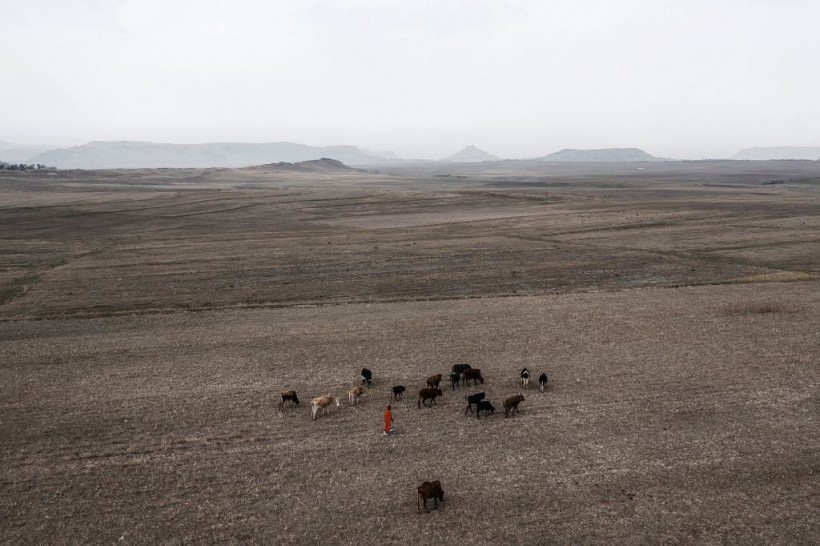Next spring, the calves of Canadian dairy farmer Ben Loewith will be among the first in the world to be bred with a specific environmental purpose in mind: burping less methane.
In June, Loewith, a third-generation farmer in Lynden, Ontario, began artificially inseminating 107 cows and heifers. He used the first bull semen to hit the market that had a genetic feature that reduced methane emissions, according to Reuters.
According to scientists and professionals in the cattle industry, the development of commercially available genetics to produce dairy calves that exhale less methane could aid in reducing one of the main sources of the potent greenhouse gas.
The majority of methane emissions from cattle come from their burps. The adoption of the low-methane for cows, according to Semex, the genetics business that sold Loewith the semen, could cut methane emissions from Canada's dairy herd by up to 20 percent-30 percent by 2050.
This April, the company started selling methane-trait semen in 80 different nations. According to vice president Drew Sloan, early sales include a farm in Britain, dairies in the US, and farms in Slovakia.
Low-Methane Breeding of Cows
Low-methane breeding, which was not engaged in its development, may, if extensively used, have a "profound impact" on cattle emissions globally, according to Frank Mitloehner, a professor of animal science at the University of California Davis.
Low-methane breeding hasn't won over certain regulators in the dairy business; they claim it could cause digestive issues.
In an email, Canada's agriculture ministry stated that although it has not yet evaluated the product's methane evaluation mechanism, lowering emissions from cattle is "extremely important."

14.5 percent of the global greenhouse gas emissions come from livestock. The second-largest greenhouse gas after carbon dioxide is methane.
While farmers can feed chemicals to cattle to lower methane output, Mitloehner noted that because they are not authorized for usage in the US, their effects disappear after the cattle stop eating them.
Based on studies by Canadian scientists, the low-methane breeding stock is the result of a collaboration between Semex and Lactanet, Canada's milk-recording organization.
In April, Lactanet announced the results of the first-ever national genetic study of methane from Holstein cows and heifers on 6,000 farms, or almost 60% of Canada's dairy farms.
Scientists from the Universities of Guelph and Alberta conducted methane measurements on dairy cattle for seven years, which were used in the registry.
Methane emissions from cattle were recorded by the scientists, who later correlated the results to genetic data and milk samples.
According to Christine Baes, professor of animal biosciences at the University of Guelph, who worked on the experiment, methane emissions from dairy cows in Canada range greatly, from 250 to 750 grams per day. According to her, selecting for the low methane characteristic could stabilize decreasing emissions over time.
According to Vice President of Research and Innovation Michael Lohuis, Semex is not initially charging more for the methane characteristic. He declined to give sales forecasts but believes that until there are financial incentives, sales will be slow.
Read also: Artificial Photosynthesis Closer To Reality Thanks To Bacteria That Convert Hydrogen Into Methane
No Available Incentives Yet in Canada
The Canadian government does not currently provide incentives for the breeding of low-methane cattle, but according to an email from the agricultural department, Ottawa is seeking to implement offset credits for lowering methane through improved waste management.
Farmers are being urged by several nations and food industries to switch to lower-emitting cattle.
Related article: New 'Mad Cow Disease' Emerges in the US: Found in a Beef Processing Plants








